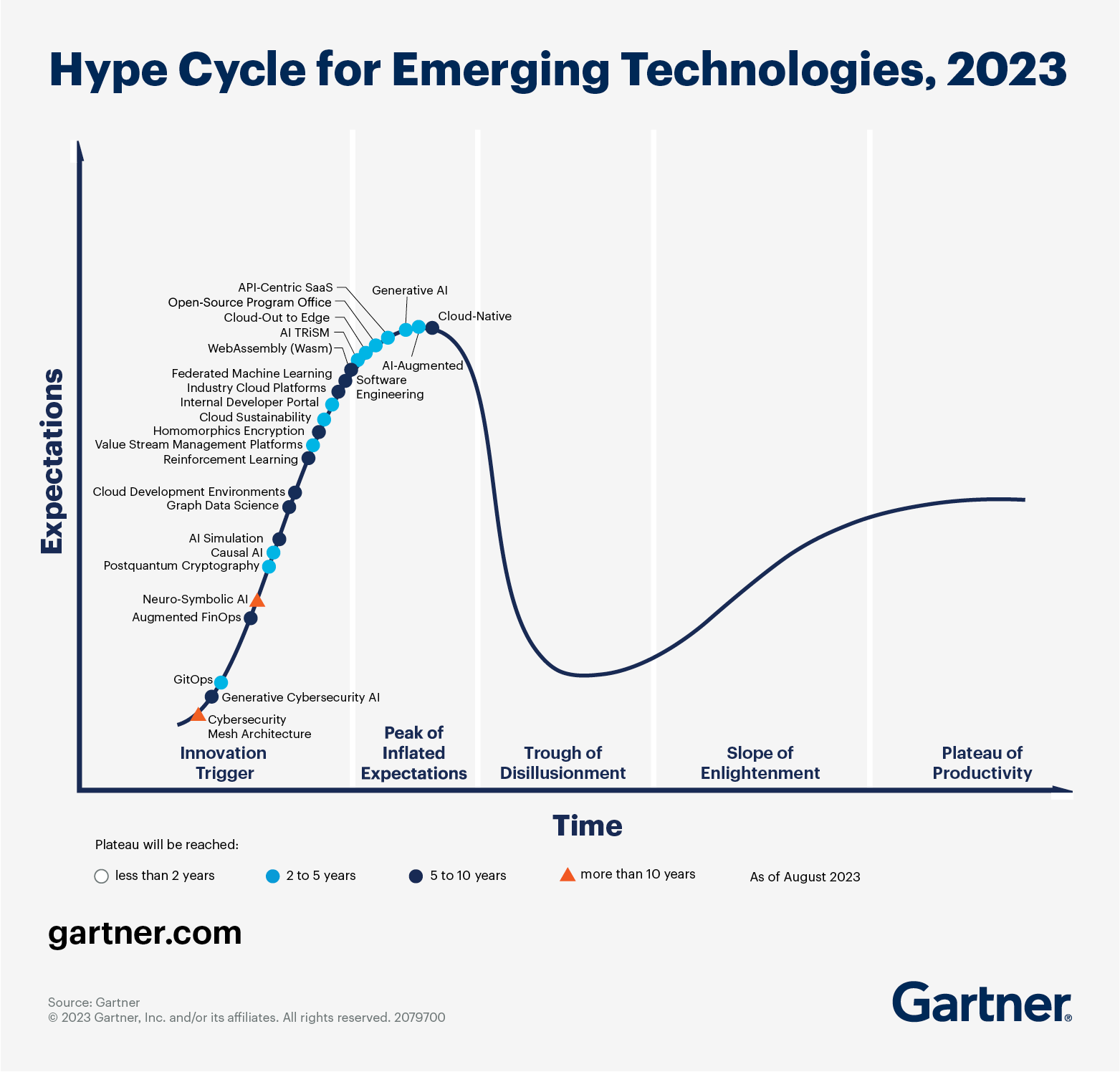TLDR:
Tech is at a unique inflection point. Over the past few years, we’ve seen the collision of Artificial Intelligence and LLMs, Cloud Data, and the idea of a composable tech stack, comprising of best-in-breed tooling colliding. We got to sit down with Scott Brinker, Editor at chiefmartec.com, Darrell Alfonso, Director of Marketing Strategy and Operations at Indeed, Boris Jabes, CEO at Census, and Phil Gamache, Co-Founder of Humans of Martech to dig into why this is happening now, which organizations stand to be impacted the most, and what comes next.
The data layer has undergone significant transformation over the past five years. The vast amounts of business data being pushed into cloud data warehouses have particularly been a game-changer for marketers in fueling campaigns and crafting behavioral trigger models along the customer journey, bringing about a new era of creativity and strategic value.
Tech tools are embracing composability more than ever. This shift liberates teams from the confines of single products, allowing for the orchestration of experiences across various tools. You can find the full conversation here, or keep reading for a recap of our conversation with some of today’s greatest minds in Martech.
Why now?
Gradually, then suddenly, as the saying goes. AI, cloud data, and composability are not entirely new concepts, but their practical application for marketers has gradually evolved. Gone are the days when marketing could offer one message to customers, the sales team another, and the customer success team yet another.
Even as we found ourselves collecting more and more data, it took a while to figure out precisely what to do with all of it. Scott Brinker, Editor of chiefmartec.com and VP, Platform Ecosystem at HubSpot, pointed out that for quite a while, everyone was just focused on getting data into the warehouse, and it’s only recently that marketing and data teams are finding the convergence of AI, cloud data, and composability to be scalable.
Darrell Alfonso, Director of Marketing Strategy and Ops at Indeed, likened data problems from disparate systems to trying to pull a broken lever or press a stuck button, and that “instead of actually moving the needle with all of these strategies that we're pulling levers on, we're stuck fixing the lever.”
Darrell theorized that a focus on monetization has led to a lack of innovation from Martech vendors in delivering value and creating seamless experiences. The need for tools to work without marketers needing to focus solely on keeping costs down has come to a head, driving the collision of these trends.
Martech tools shouldn’t be creating yet another silo for marketers to manage — this is a sentiment that’s being echoed by many analytics engineers and data teams who are now realizing their own role and impact in measuring the value of the tools they use. And, according to Boris Jabes, CEO at Census, in answering questions like “Did that [campaign] have an impact? Did that [campaign] drive long-term attention? Did that [campaign] help cross-sell this other product?” having data joined together to paint a clearer picture of ROI, marketers and data teams alike can prove the value of the dollars spent on Martech.
Who’s ready to adopt AI tools & the universal data layer?
To recap: we know that AI, cloud data, and composability are converging in a way never before seen. And, we know that the driving forces behind this change are a need for innovation in Martech and the rapid rise in the ubiquity of the cloud data warehouse. How do organizations’ sizes and maturity affect the adoption of AI tools and the universal data layer?
Darrell acknowledged that enterprises are sometimes criticized for being slow, and while that might be true, it's not due to a lack of desire. They want to invest in the latest technologies and experiences and leverage AI across the organization, but the complexity and risks are more significant for larger organizations. On the other hand, startups often lead the way in proving new technologies, taking more risks because they have less at stake in data privacy and compliance. Enterprises, especially in marketing, must be more cautious due to their larger customer bases and a duty to act in their best interests.
On the other hand, however, Scott pointed out that innovations from the past few decades have compressed the Gartner Hype Cycle — where enterprises might have once planned to adopt tech innovations in 5-10 years, the pandemic and a series of innovations have forced companies to innovate or die.
 |
Some of these innovations might have happened too quickly, in hindsight, but enterprises are also learning that adopting new tech and innovation can occur more rapidly than initially realized.
What comes next?
Predicting the future is hard. As frustrating as that can be, it’s also true that we’re living in a fascinating era: we have no idea how different the world will look in December 2024, just like we had no idea how different the world would look in December 2023, and that’s kind of cool.
Scott, who recently released his predictions for Martech in 2024, predicts that the data warehouse will continue to be adopted by more and more companies — both in terms of the number of companies adopting and the number of use cases. He calls out composability as a long road with much progress to be made, predicting that we’ll see more tech companies competing on their composability.
In keeping with the recurring theme of adopting new technologies, Darrell predicts that while the SaaS bubble may continue to see faster adoption, the overall business ecosystem will see a slower burn — not unlike waking up one day and realizing that everyone has a smartphone in their pockets.
Operationally, he both hopes and predicts that we’ll grow to see more guardrails in companies’ use of AI over the next year. “I'm predicting, hoping, that there's going to be this rise of this role that I call the AI operator, or the AI subject matter expert. Rather than people in a haphazard way using AI across the company, I think it should be centralized to a group. I think that group should have their eyes on the customer experience and also the experience of the employees”, said Darrell.
Boris took a more consumer-focused approach to his prediction and touched upon how AI has become a consumer phenomenon in an unplanned way. He predicts that if and when consumers begin to expect AI in their interactions with brands, there will be a significant need for both accelerated availability and data quality.
One common prediction shared by all: the future is unpredictable and exciting — this time next year, we’ll likely look back on 2024 with the same wonderment and excitement that we’re currently feeling.
Want to hear all of Scott, Darrell, Phil, and Boris’s insights and predictions? Watch their full panel on-demand.

















